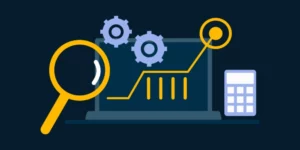Revitalize Your Finance Function and Get it Future Fit
The uncertain economic conditions caused by the headwinds of inflation and rising interest rates means there is an urgency for CFOs to step up and show leadership.
Cost pressures and a less buoyant fundraising market have led to efficiency and sustainability being key trends in 2023. Finance leaders must demonstrate their ability to lead from the front by having the confidence and impetus to drive efficiencies across their departments and the wider business.
Recent research from PwC shows that 83% of executives are currently focused on longer-term sustainable growth.
Follow the checklist below to get your finance function future fit and secure your organization’s long-term future.
Optimize Costs
One of the first actions CFOs should take is optimizing costs to cut back spending on services no longer required due to being more relevant to the growth at all costs era.
The pandemic led to the rise of hybrid and remote working, leaving many companies with excess office space. Where possible, use break clauses in rental agreements to find new premises that can accommodate hybrid staff working from the office two to three days a week.
You’ll also likely want to tweak your focus on marketing spend. Cutting back on marketing budgets for brand-related campaigns and initiatives is a good start since they can’t be quantified and don’t directly correlate to customer acquisitions, making them harder to justify.
A central tenet of business sustainability is doing more with less, so regrettably, you may need to work with department heads to identify roles that are no longer required, either due to a change in strategy or by being a source of cost savings.
Encourage Technology Adoption to Drive Automation Further
Efficiencies can also be powered by the smart use of technology to maximize automation.
The finance function has many process-driven day-to-day tasks, such as procurement, invoicing, PO management, bookkeeping entries, reconciliations, and payments, that can all be automated by ERP software and payables tools.
Mapping out your finance processes can help identify how automation can save you time, free up resources, and lower costs, while promptly delivering accurate financial data.
Undertaking this approach helps with future-proofing finance overhead while continuing to grow your business since you won’t need to add additional staff due to automation doing a lot of the heavy lifting.
While it may be challenging to find the time to prioritize and implement automated finance tasks and workflows, doing so will generate long-term value and free up employees to provide input into strategy and company-wide initiatives.
Get a Grasp on Your Unit Economics
Improving and iterating your unit economics will ensure you can maximize revenues and profits, ultimately becoming more sustainable.
This requires finance leaders to understand and minimize their cost of sales to improve their gross profit margin on a per-unit basis. It’s critical to get this under control as failing to do so can result in loss-making marketing activity that may yield new customers and revenues but isn’t optimal given that we are no longer in a growth-at-all-costs era.
Improve Cash Flow
The slowing frequency of investment rounds signifies the need to conserve and generate cash. Funding rounds that previously had a three-year timescale are now being stretched out.
Collecting funds faster and paying suppliers just on time reduces the likelihood of bad and irrecoverable debt and boosts balances. This reduces the possibility of needing to seek out debt funding between lengthening equity rounds.
New and existing customers should be credit checked and monitored for adverse financial events affecting their ability to pay. Companies should be mindful of taking on new customers with poor credit scores, and existing clients with declining scores should be given shorter credit terms if they have started to pay late.
An effective way to get paid faster for non-SAAS B2B businesses is to include digital pay links on invoices that provide a seamless payment experience for customers.
Conduct Regular Stress Tests
Alongside keeping a keen eye on cash flow, CFOs should conduct regular stress tests on their financial data.
This will allow them to ensure their companies can continue to trade despite unplanned circumstances, such as a drop in demand for goods and services, further interest rate increases, and supply chain disruptions.
Stress tests should encompass all of the above scenarios, with finance assessing the bottom line of any impacts alongside what pre-emptive measures can be implemented to minimize risks.





